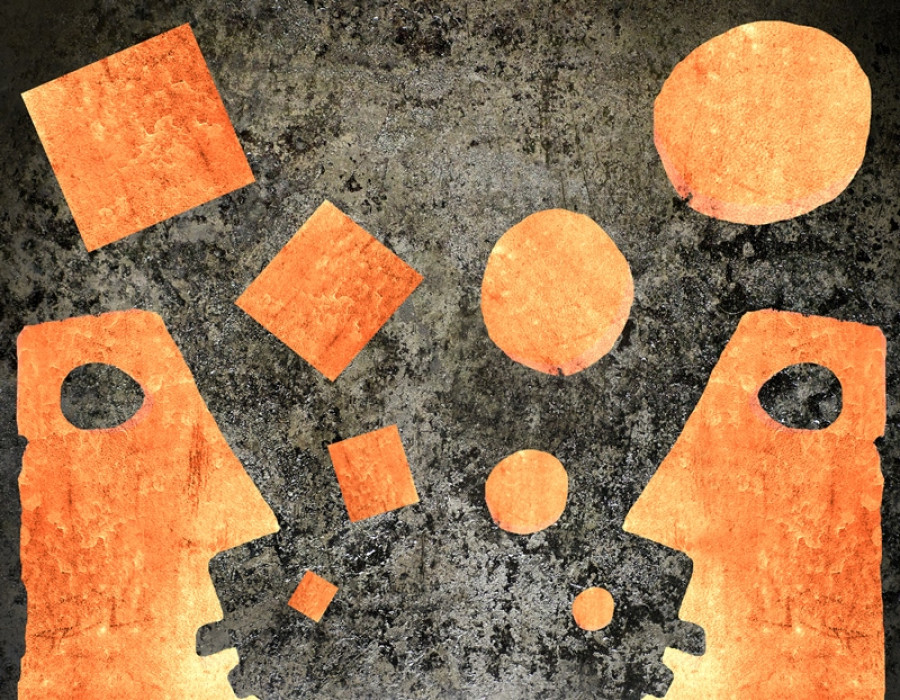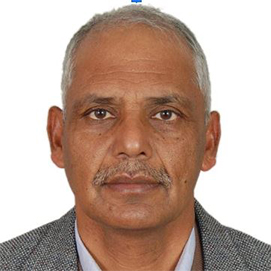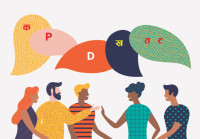As it is
The language of social discrimination
Language is a social divider. But as much as it can divide society, it can also unite it.
Bhupa P Dhamala
The use of discriminatory language has been practiced in almost all cultures of the world. There are socio-politically constructed divisions of society such as "low caste" communities, "lower class" communities, "inferior" women, and the "backward" Orient. These are the categories deliberately used by "high caste" communities, "upper class" communities, "superior" men, and the "advanced" Oxidant. So the former are labeled with derogatory terms whereas the latter have to be addressed with honorific terms. This type of language use causes an unnatural division in human society of humans who are born equal in the eye of nature but are constructed as unequal for one reason or the other.
Politics and society
We often hear some people say politics and society are independent so social structure cannot be affected by politics. But when we examine this proposition more closely, we may find it rather fallacious. If politics was truly independent from society, then it would only be a pastime for some politicians. Nothing in this universe is completely free from politics, however. It is found in all spheres of life—from the simplest way of living to the most complex system of governance, from simple arithmetic to profound philosophy, from simple songs to the great art and literature. Everything that happens in the human world, therefore, entails politics in one way or the other. Politics is done by humans so politics and society cannot be separated; they are inextricably linked to each other.
Some of us may not have noticed that language plays a significant role in politics. Or even if we have marked it, we may not have understood the intricate ways politics is carried out through language. Since politicians are of two types: 1) uninterested and interested, and 2) philanthropic and selfish. They have two purposes accordingly—good and bad—so language can also be used for both benign and malign purposes. Somehow based on Sapir-Whorf hypothesis of linguistic determinism, George Orwell (1949) argued that language can be an instrument of thought control to serve malign interests of the ruler in totalitarian regimes. The ruler of this regime is also a part of society so they can control society by applying some linguistic strategies. In this sense, language is related to both politics and society.
Language as a social divider
It has been a common practice throughout the world that social groups are divided by means of language, labelling them as high or low, civilised or barbarian, advanced or backward, and many other categories. These labels create positive or negative mindsets, biases, and prejudices, particular worldviews to see and interpret things and events. As Isthla Singh (1999) says, language is the means by which powerful groups can create distinct reality which is far from the truth and make it acceptable to the general people without their knowing. Therefore, the use of honorific terms to the superior and non-honorific terms to the inferior is not merely an indicator of social hierarchy. Apart from socially acceptable forms of language use, unnatural difference in language use can also be seen in all spheres of life. Sometimes this discrimination is manifested in a blatant manner while in other cases it is ingrained in a subtle manner so it is unintelligible to many. In either case, language is a social divider. But as much as it can divide society, it can also unite it.
.
Social discrimination through language
The people of powerful communities often use derogatory terms to describe the people of powerless communities. One of the most obvious ways language discriminates against social groups is the use of particular forms of language meant to particular groups of people. This discrimination can most visibly be seen in the language of negative labeling in terms of race, class, gender, and nationality/regionalism. Let us look at some examples of racist, classist, sexist, and regionalist terminologies used by various powerful social groups to discriminate against the powerless.
We have often heard that American society is divided between white and black communities in terms of race and colour. So the white community which assumes itself as superior to the black community uses derogatory terms such as "negro/nigger" to denigrate the latter. By doing so, the white community forms a negative stereotype about the black community. There is nothing like negro/nigger in terms of the biological nature of a particular race. The signified of this linguistic sign is the negative attitude towards the black as constructed by the white. Similarly, the "upper class" people call the "lower class" people "poor" and men use sexist language to women.
In the Nepali context too, a person of "high caste" uses derogatory terms such as "untouchable" to people of "low" caste; a person of "upper class" uses such terms as gareeb or tannam to the people of "lower class"; and most notably, a husband calls his wife tan or timi simply because he is born as male, while the wife has to address her husband by using honorific pronouns such as tapain or hajur only because she is born female. Language can also be used to create stereotypical attitudes towards some people who belong to certain nations or regions. When, for example, a westerner uses the term Paki, it forms a negative perception about Asians. The more this term is used, the more factual and objective it looks without being so. For example, when the northerners may use such derogatory terms to talk about the southerners; the urbanites may use words in a pejorative sense to talk about the rularites. It is in this way minority/powerless groups of society are discriminated against by means of negative labelling.




 13.12°C Kathmandu
13.12°C Kathmandu










